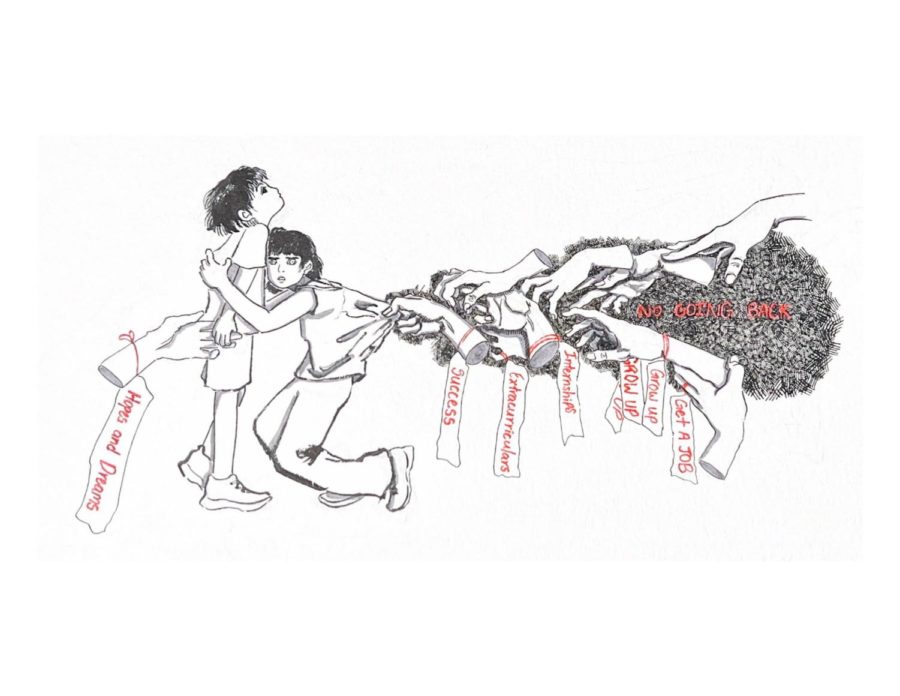Recently, several states have considered measures that some allege would legalize discrimination against gay and transgender people. For instance, North Carolina passed a bill preventing cities from introducing anti-discrimination legislation based on gender identity. The bill also requires transgender people to use bathrooms that correspond to their birth-assigned sex and not the gender they identify with. A similar Mississippi law allows people to deny jobs and services to LGBTQ+ job applicants and customers.
Defending legislation this bigoted requires the use of convoluted rhetoric. Proponents of these bills claim that, in addition to protecting the prejudices of business owners, the bills defend the liberty of the persecuted straight Christian majority.
Such a defense (ignoring the fact that polls show a majority of North Carolina’s citizens do not support legislation of this kind) supposes that we have a right to discriminate, so long as we say that we’re doing it for religious reasons. And because we’re doing it for religious reasons, legally protecting this discrimination isn’t simply acceptable—it’s doing a service for everybody’s freedom.
In this distorted vision of the world, the real victims of laws banning anti-discrimination legislation are the straight bigots who’ve suffered the indignity of not getting to discriminate against whomever they like.
Such a worldview is built on a perverted understanding of liberty. Although it may seem ridiculous, this conception of liberty is becoming increasingly popular. People legitimately believe that their First Amendment rights are being violated if they cannot force their religious beliefs on others. But interpreting freedom of religion as the license to do whatever you think God wants you to do is ludicrous and untenable, for obvious reasons. What if voters were to decide that refusing service to gay people doesn’t go far enough? What if people don’t want to allow gay people to live in their town at all? What if someone wants to deny service to people based on race for “religious” reasons?
These forms of discrimination would likely outrage many of the same people who support the North Carolina and Mississippi legislation, but the logic is essentially the same. If you can lawfully refuse service to an entire class of people for religious reasons, then you ought to be able to deny service to anybody if you claim your religion precludes you from it. Apparently, this is the only way to guarantee our freedom.
But religious liberty is not free rein to discriminate against whomever you want, so long as you’re quick to clarify that you’re doing it for spiritual reasons. The First Amendment says that Congress can’t restrict your free exercise of religion—within reason. Reynolds v. United States, in which the Supreme Court ruled that religious duty doesn’t trump anti-bigamy laws, clearly sets limits on religious freedom; the Court’s opinion clearly states that religious convictions are subordinate to the law of the land.
You can’t sacrifice people, no matter what religious sect you belong to. You can’t have multiple wives. You can’t refuse to pay your personal income taxes because your god hates the IRS.
Lawmakers don’t consider any of these limitations to be threats to religious liberty, yet many are quick to call anti-discrimination legislation an attack on spiritual freedom. But why is my religious liberty in mortal danger if I have to sell products to gay and straight people alike? That’s hardly an imposition on my religious beliefs. I’m still free to be as homophobic and nasty as I like, after all. There are plenty of other venues through which I can express my religious beliefs, however discriminatory those beliefs may be. I simply can’t use my “liberty” as a thinly veiled excuse to steal someone else’s.
Religious freedom is being used as a permit to encroach on other rights by people who believe that freedom is the voting populace’s right to get what it wants. And if a substantial portion of the population wants to deny service to gay people, then as a free country we are apparently obliged to let them. But both voters and lawmakers have rallied behind insane and evil laws before. This fact shouldn’t be controversial; the voting majority at various points in history has supported slavery, Jim Crow laws, and limiting suffrage to white men. Would anyone today dare to claim that allowing slavery or restricting the vote protected liberty—by giving voters what they wanted at the time?
But maybe it’s unreasonable to expect voters to understand what their rights are (and, crucially, what their rights aren’t). The American people are horribly uninformed: in 2012, a study found that a third of voting age citizens would fail the civics part of the citizenship test, and a 2011 national civics exam found that less than 50 percent of eighth graders could identify the purpose of the Bill of Rights and most couldn’t name a single Congressional power derived from the Constitution.
This is why state legislators can make the ludicrous assertion that people are being victimized by efforts to protect minority groups; too many people don’t know enough about the Constitution to understand what their specific rights and freedoms are. If you don’t understand the freedom you’re entitled to, how can you be expected to know that your elected officials are spitting in its face? As far as many lawmakers and voters are concerned, the majority has a right to enshrine its prejudices in law, as a matter of basic “religious liberty.” This laughable conception of freedom doesn’t sound any different from unbridled bigotry, and the precedent it sets is outrageous—the instant anyone can successfully argue that their spiritual beliefs override anti-discrimination legislation, no one’s freedom is safe.
Natalie Denby is a first-year in the College majoring in public policy.









